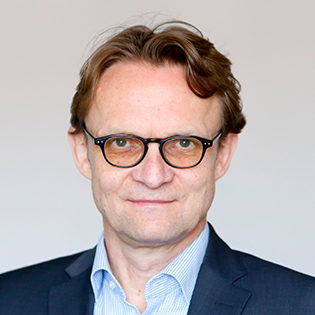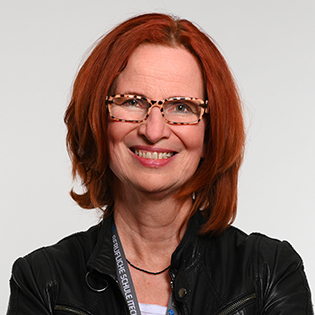Routes out of the crisis – structuring vocational education and training in a future-proof way
Thinking Space 8
The coronavirus pandemic has now been keeping the world in suspense for over two years. It has also left visible traces on vocational education and training. The ongoing conflict in Ukraine represents the next crisis already upon on us which will likewise exert a direct effect on the VET system. The experiences gained during such times of catastrophe may be able to provide valuable assistance in the further development of the vocational education and training system and thus continue to secure an excellent level of provision.
Lockdowns, company closures, distance learning and training and falling training numbers have all created major challenges for firms and vocational schools. Cooperation between learning venues has gathered momentum in many regions in a bid to guarantee that local dual VET will remain of high quality. As essential multipliers, VET staff play a particularly key role. Creative and pragmatic possible solutions have frequently been drawn up in situ. But what is the nature of these approaches? Who is providing the impetuses and driving innovation? Which occupational areas have achieved notable success in overcoming the crisis, and why has this been the case? In this Thinking Space, we will be joining stakeholders from the areas of academic research, policy and practice to discuss these questions and other issues too. The debate will also be informed by specific practical examples. The aim is to use the findings and experiences gleaned over the past two years to learn how we can cope with future crises more effectively.
Programme overview
Part 1 (09:40 – 10:40)
Moderator: Henrik Schwarz (BIBB)
- Impulse lecture "Principles of Modern Vocational Education and Training": Prof. Dr. Karl Wilbers (FAU Nuremberg)
- Pitch "Codified additional qualifications in training": Martin Thum (Mahle GmbH)
- Pitch: Melanie Krüger (Deutsche Bahn AG)
- Pitch "Learning location cooperation, hybrid teaching": Monika Stausberg (Vocational school ITECH Hamburg)
- Pitch "Exams during the pandemic: What have we learned?": Dr. Oliver Heikaus (DIHK)
Part 2 (10:55 – 11:55)
Moderator: Florian Winkler (BIBB)
- Impulse lecture "Future of the world of work and vocational training": Prof. Dr. Jutta Rump (Institut für Beschäftigung und Employability IBE)
Q&A by trainees + discussion
- Dr. Markus Eickhoff (KWB)
- Thomas Giessler (DGB)
- N.N. (KMK)

Prof. Dr. Karl WilbersChair of Business Education and Human Resources Development at the School of Business, Economics and Society of the Friedrich Alexander University of Erlangen-Nuremberg (FAU)
“Vocational education and training is regularly confronted with both disruptive crises and continuing changes. In order to shape it in a future-proof way, we will need to overcome entrenched patterns and confrontations – e.g. the principle of the regulated occupation versus modularisation. Courageous regulatory ideas are required. Specific pilot projects which are monitored in conjunction with the social partners are also necessary at companies, schools and institutes of higher education.”

Markus EickhoffManaging Director of the German Employers’ Organisation for Vocational and Further Training (KWB)
“Structuring vocational education and training in a future-proof way means strengthening tried-and-tested aspects and taking a brave approach in areas needing improvement. Securing the future requirement for skilled workers at companies will largely depend on whether supply and demand can be precisely matched on the training market.”

Melanie KrügerStrategic human resources development and trainee coordination at DB AG (Germany’s national railway company)
“The vocational education and training of the future still needs to aspire to a high level of quality which is expressed in uniform learning objectives and examinations. But in order for it to remain truly sustainable, simplified and significantly faster processes will be required in order to adapt contents. A huge joint effort will be necessary to establish dual VET in society as an attractive entry route.”

Monika StausbergSchool Director, BS14 Hamburg
“It’s possible to design VET for the future in hybrid learning worlds and in cooperation all learning venues.
The basis for this is a culture of teaching/learning focused on autonomy, competence orientation and individualisation and by lively collaboration between learning venues.
It goes without saying that we are seeking to use the opportunities presented by digitalisation to create suitable learning provision and to work and communicate collaboratively in agile frameworks.
Our piloting of hybrid teaching during the pandemic constituted a necessary next step in terms of decoupling the established teaching and learning culture from space and time. Learners are thus able to set individual main focuses, shape their learning process and form their own personal competence profile. The key aspect here is that digitalisation supports didactic principles which are directed towards the future. However, it cannot replace them.”

Thomas GiesslerGerman Confederation of Trade Unions
“In order to achieve the necessary transformation, we need skilled workers who are able to tackle and shape new and complex challenges in a competent, collegial, cooperative and creative way. Employability skills must be reinforced, especially during times of change. Sustainable personal development requires us to promote the creation of good working and living conditions and to encourage co-determination.”
